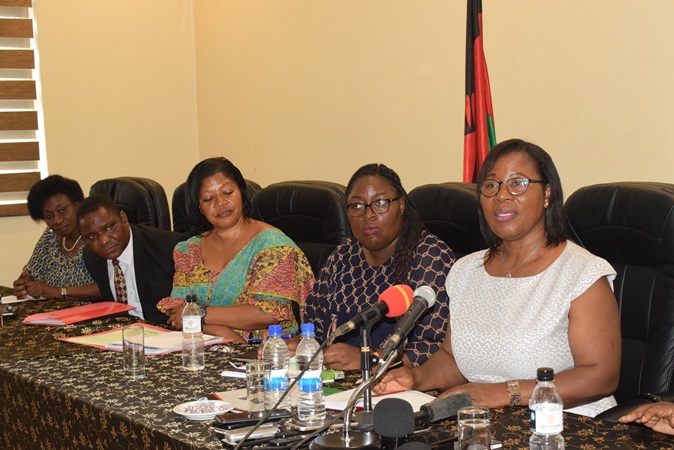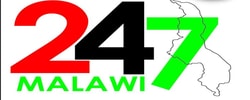Malawi Electoral Commission (MEC) has officially launched the campaign period for the July 2 fresh presidential election five days before receiving nomination papers from the aspiring candidate with calls to political parties to develop innovative ways of reaching out to the electorate amid the coronavirus (Covid-19) pandemic and social distancing measures.
MEC chairperson Justice Jane Ansah SC explained that the campaign period is being launched before receiving nomination papers scheduled for May 6 and 7 at Mount Soche Hotel in Blantyre because Section 57 of the Parliamentary and Presidential Elections Act provides that the period of official campaign in public shall be 60 days, ending 48 hours before start of polling.
The official campaign period for the fresh presidential elections will run from May 2, 2020 and end on June 30, 2020 at 6 AM.
“It is not in conflict of any provision of the law that the period of official campaign in public is commencing before the nominations.
“In accordance with Section 48 paragraph (b) of the Parliamentary and Presidential Elections Act, the 1st polling day must then be a day not less than 21 days after the nomination day or last nomination day.

“This clearly means that campaign period does not necessarily have to commence after nominations all the time. According to the law, the nomination days and period of campaign may overlap.”
Considering that the campaign period will be done during the virus pandemic, Ansah asks all candidates to find other innovative ways to of reaching out to the electorate while observing the various public health guidelines and restrictions that are in place.
“All candidates and political parties are expected to follow proper procedures especially the COVID-19 preventative measures when booking venues and notifying the Police,” Ansah said.
“The campaign period is, therefore, a defining moment for all political parties and their candidates. It will be especially challenging in the era of COVID-19 as they have to come up with innovative means of reaching out to the electorate with their messages,” she said.
She has reminded all candidates and political parties that they signed to adhere to the Code of Conduct for Political Parties and Candidates and the commission expect them to abide by it.
“During this period, all Malawians are looking forward to an issue- based campaign as well as one that is safe and will not spread the Coronavirus further.
“Please tell the electorate the substance of your manifesto and not focus on castigations and hate speech,” Ansah advised.
She reminded the candidates, political parties, supporters and all stakeholders that MEC will be monitoring all campaign activities to ensure compliance during the campaign period and that I n accordance with the law, all public officers and government agencies — including traditional leaders — are expected to treat all candidates equally and give them all the support.
“…The era for taking the campaign period as an opportunity or instrument to harass, humiliate, demonise, defame, intimidate and repress political opposition is over.
“If a candidate or political party is associated with this, they should be cautious because it has tendency to rebound. Parties and candidates have the responsibility to seriously address real issues, elaborate their manifesto, so that voters should judge them based on their ideas and on how they would resolve problems facing our nation today.”
“In this campaign, we stress that our politicians should emphasise on physical distance, above average hygiene standards, electoral tolerance and leverage on issue-based campaigns.
“The obvious lack of issue-based campaigns among our politicians, is a source of serious concern. Malawians are looking forward to campaigns that will transform their lives and livelihood.
“They want to see campaigns that will consolidate and strengthen our democracy beyond individualism, ethnicity and regionalism.”
She encouraged Malawians to get themselves informed of the manifestos of various political parties and candidates, saying that a sound manifesto should articulate achievable programmes that will enhance the development of the country and improve people’s well-being.
This, she said, will enable “the electorate to decide to vote for the party or candidate that has a programme which is best for the nation”.
“Another area of serious concern is the manner in which political parties and candidates have at times abused the youths of this country. We have seen politicians sponsoring the youths to indulge in violence, disrupt political rallies and doing other unpalatable things.
“This is unacceptable and must be arrested forthwith. The youths have a noble role to play in the country as leaders and must never be abused.
“They should be given positions and not sent on disruptive errands for opponents’ meetings.”
On the role of the Police and all security institutions, Ansah expects — as usual — for them to ensure a conducive political environment, saying if they do not perform their duties professionally, that can easily erode the efforts of all other stakeholders to achieving credible elections.
“Elections cannot be touted to be free and fair if they are conducted in an environment full of fear, intimidation and violence. Presence of these factors deters some eligible voters from participating in electoral processes like registration and polling.
“If elections are marred by violence, intimidation and fear, chances are high that the losing side will not accept the results.
“You will agree with me that it is one thing to lose in an election and it is another thing to lose an election marred by violence and intimidation. In such situation allegations of rigging are rife.
“What losers say after elections is also crucial in maintaining peace and order. Peace will be sustained if losers lose in a freely and fairly contested election.”
She added that it is an honest expectation of every citizen that the Police will ensure that those who commit electoral offences are brought to book and that the Police should ensure that all candidates and voters are protected.










